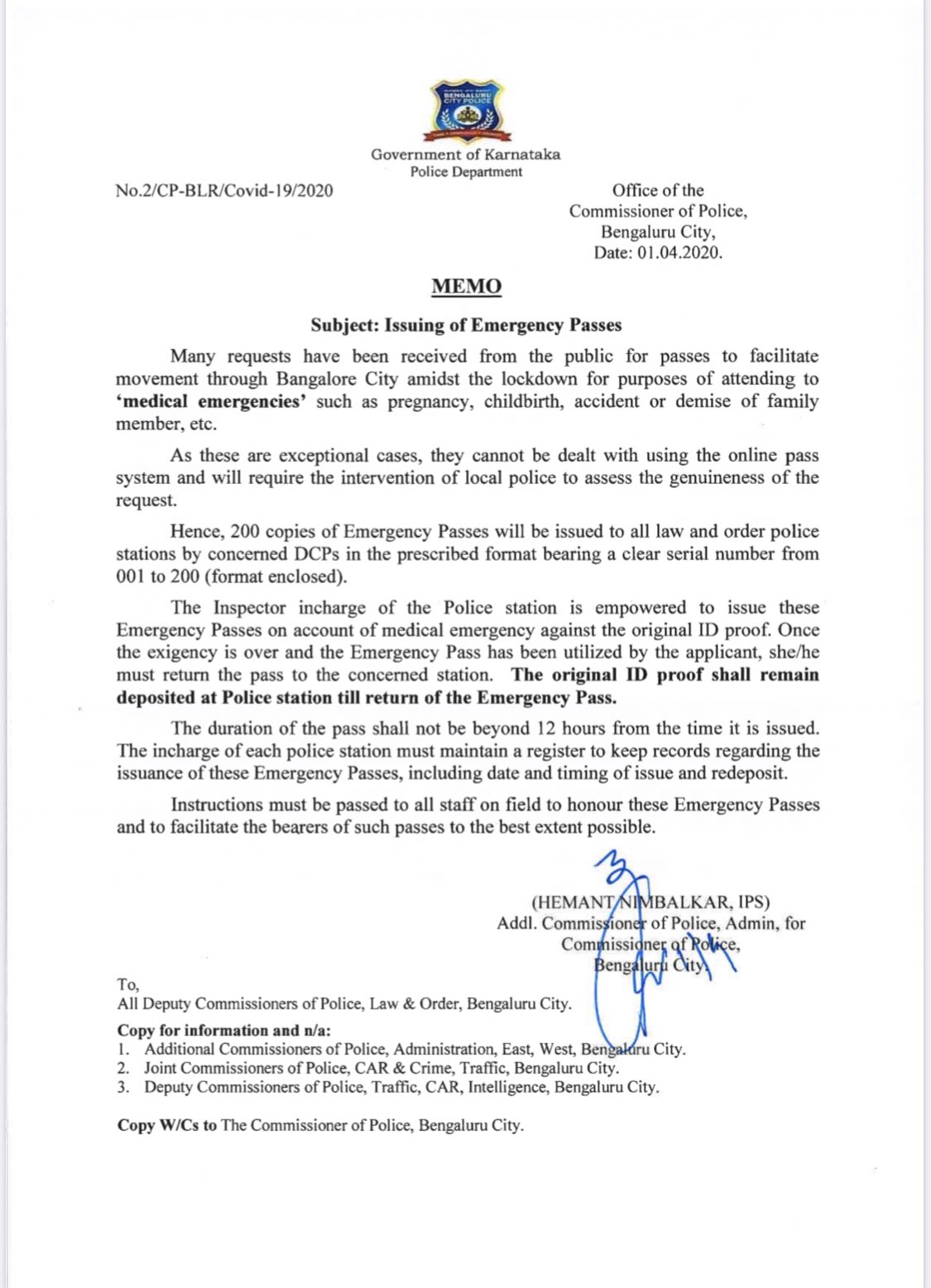On April 1, Bengaluru’s Commissioner of Police Bhaskar Rao tweeted that the police had been seizing vehicles and that people should ‘walk to their grocery shops’.
Bangalore City Police has already seized
1. Two wheeler 5106 2. Three wheelers 181 3. Four wheelers 263 People are moving with the silliest of Excuses, respect Lockdown. Walk to your grocery shop.— Bhaskar Rao IPS (@deepolice12) April 1, 2020
The seriousness of the order became evident when a person tweeted asking if he could use his car to travel to a supermarket that was 3 km away. Rao replied to say that his car would be seized if he were caught.
Another resident enquired if he could use his vehicle to visit an ATM as it was a few kilometres away. This time, the Additional Commissioner Hemant Nimbalkar shot back saying that the city is under a lockdown and that citizens must understand the “seriousness of the issue”.
You are in Lock Down and hope you understand the seriousness of the issue
— Hemant Nimbalkar IPS (@IPSHemant) April 1, 2020
The various orders and circulars issued by the Centre and the state government have been categorical in stating that during the lockdown, citizens are free to step out to purchase essential commodities and access essential services. To this end, citizens ought to be free to decide whether they want to access these commodities and services by walking or driving.
The diktat of the Commissioner is problematic – not every house in Bengaluru has a supermarket in its vicinity. This order presumes that every corner of Bangalore resembles Central Bengaluru and ignores other localities. It is inhumane to force citizens, especially senior citizens and people with health issues, to walk to grocery stores and carry back heavy bags. BigBasket, Grofers and other e-commerce platforms are already over stretched and orders are not being delivered as quickly as before. Moreover, not every resident can access these platforms.
Also read: Coronavirus: Dealing With the Fear of Institutions
What makes the order of the Commissioner arbitrary is the fact that the prohibition on using vehicles to access these commodities and services has no nexus with the objective of mitigating the pandemic. There is no evidence to show that driving to a grocery store, and not walking, will worsen the pandemic.
The solution the Commissioner came up with when these issues were pointed out was urging citizens to dial 100 and summon police emergency response vehicles and to use them to visit grocery stores.
Apart from the problem of police vehicles and personnel being diverted from their real purpose, it is hard to understand the logic behind this one. Driving alone in a private vehicle during a pandemic which requires physical distancing is definitely safer than travelling in a police vehicle which has been used by a number of people.
Yet another problematic measure is the introduction of ‘medical emergency passes’, which are valid for 12 hours. It was introduced by way of a memo issued by the Additional Commissioner and the memo describes it as a pass for free movement in case of childbirth, accidents, etc. It may be obtained by visiting the nearest police station and depositing original identity and address proofs.

The memo issued by the police on medical emergency passes.
But is it not cruel to force citizens in distress to visit the police station and obtain passes to access healthcare – which is an essential service? This is a case of a departmental memo overriding statutory orders recognising healthcare as an essential service and constitutional principles which accord special importance to the right to healthcare.
The Additional Commissioner clarified that while they do not expect the patient to visit the police station, a relative had to do so and obtain the pass. This is going to aggravate the hardship of family members of a patient who have to attend to the patient’s needs as well as renew these passes as they are only valid for 12 hours. The absence of this pass could very well lead to interceptions by the police and delay access to healthcare. The alternative is to call an ambulance – which may not always be available/affordable. There is, of course, the option of summoning a police vehicle, which is dicey due to the risk of infection and is conditional on availability.
Citizens must be allowed to help themselves by being allowed to drive instead of being compelled to seek the help of the police to gain access to essential services. The orders prohibiting the use of private vehicles only adds to the hardship of the common man. A public health emergency is not an opportunity to pass whimsical orders under the guise of strict implementation of the lockdown.
Rahul Machaiah is a post graduate student of law at Azim Premji University, Bangalore.
Featured image credit: PTI

